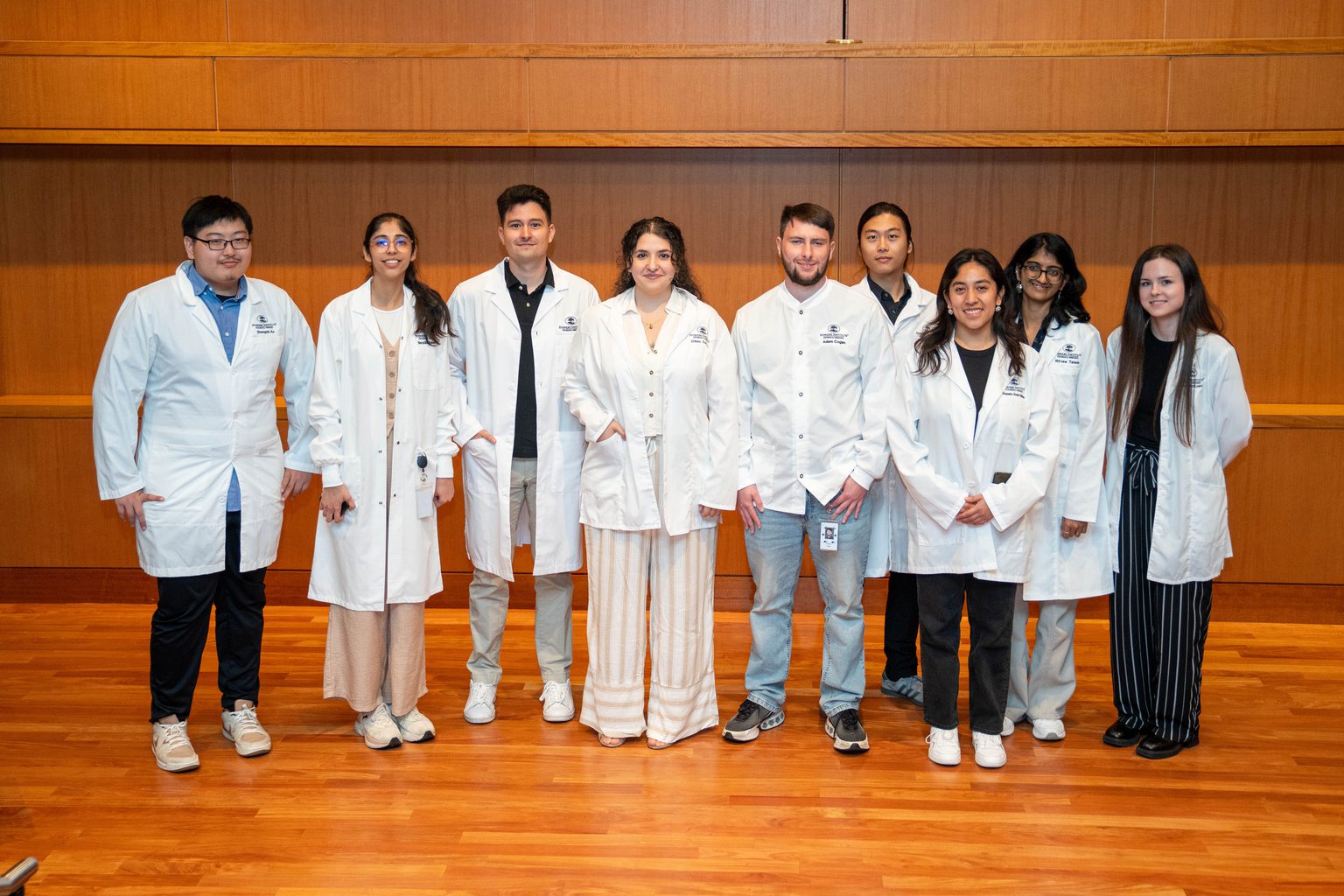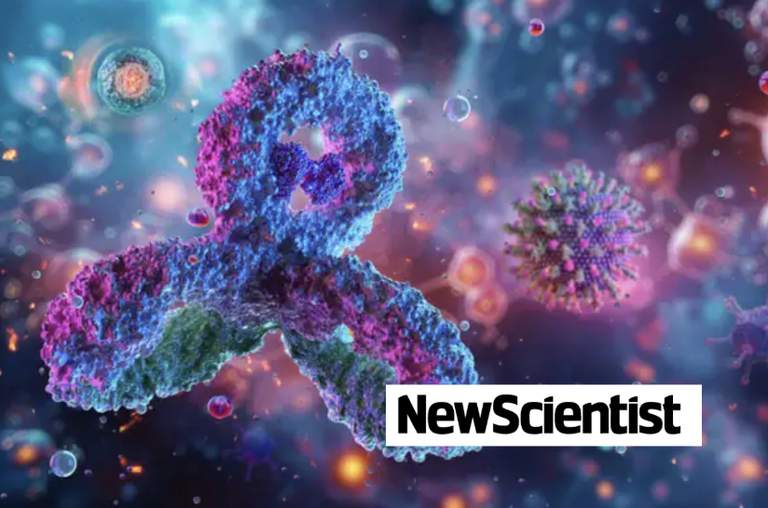News

22 June 2022
The switch-like nature of the immune system
Immune cells respond to danger in an “all-or-none” fashion via protein aggregation
Read Article
News
The Stowers Institute and the American Cancer Society work to uncover the mysteries of cancer

Foundational research is a critical step in answering questions that provide new knowledge for cancer research. The ultimate hope, years from now, is that such questions reveal clinically applicable solutions to help better human health. Research related to cancer is made possible in two labs at the Stowers Institute for Medical Research thanks in part to support from the American Cancer Society (ACS).
Randal Halfmann, Ph.D.
Stowers Associate Investigator Randal Halfmann, Ph.D., currently holds a Research Scholar Grant from the American Cancer Society that helps fund research on how the aggregation of specific proteins determines whether cells decide to live or die.
“We are trying to determine if the increased “mistakes” cancer cells make in protein production can trigger the aggregation of these proteins, and if this protects us from cancer in a way we didn’t previously know about,” Halfmann explained.
For Halfmann, his connection to cancer and the opportunity to work with the ACS is personal.

Randal Halfmann, Ph.D.
“My interest in cancer research began when I was about 11 years old, and my mom developed breast cancer with a poor prognosis. She opted for the most aggressive course of treatment – telling the doctor she had kids at home and had to live at any cost,” Halfmann explained.
Halfmann recalled this as a dark time despite eventually beating the odds. “She became a rare survivor for her subtype and has been cancer-free now for 29 years. Although I was already on a solid science-leaning path, that experience sharpened a sense of urgency in me – the appreciation that I have only one fleeting life and I was not going to waste it on minutia.”
Halfmann’s research related to cancer officially began in college. “I got hooked on the mental and emotional rush that came with discovery. I remember practically jumping out of bed with a possible solution to an experimental challenge I was having in the lab.”
“Early on as a grad student, I sat in on a lecture by a woman who would become my mentor and truly change my life. That woman was Susan Lindquist, Ph.D., a larger-than-life MIT professor who had become famous for her work in something called ‘the protein folding problem,’” said Halfmann. “She talked about prions and the notion that evolution could happen in a way most biologists don’t even know is possible.”
Halfmann joined her lab. “From Sue, I learned how to ask the questions that matter. Don’t settle, don’t back down unless or until you know you’re wrong.”
“Six years ago, Susan died of cancer. She had hidden it from all but her closest colleagues up until just a few months from the end. And even then, she worked tirelessly to help her students and postdocs get their papers out and secure their next positions,” said Halfmann.
Following Lindquist’s passing, Halfmann applied for an ACS research grant. His funding was approved in 2019. “[Lindquist] was an incredibly inspiring mentor whose presence is dearly missed. I was not about to let her gift to me go to waste.”

Randal Halfmann, Ph.D., speaking at an American Cancer Society event at the Stowers Institute in Fall 2022
Now in his own lab, Halfmann is helping early-career scientists make strides in their own research. “Every step of the way, I had highly supportive mentors. And that, perhaps more than the science itself, is what I hope to accomplish – to be able to pass the baton to the next generation; science isn’t a sprint or a marathon, it’s a relay.”
Shriram Venkatesan, Ph.D., Research Specialist I in the Halfmann Lab, is closing in on the mechanism of flux-dependent protein aggregation, a phenomenon that happens when cells make proteins faster than they would normally, as in cancer. Now, he is working with a bioinformaticist in the lab to identify the most likely tumor suppressors to be regulated by this mechanism.
Alejandro (Alex) Rodríguez Gama, a former predoctoral researcher in the Halfmann Lab studied a protein that causes certain forms of lymphoma, and uncovered an ancient thermodynamic basis of innate immunity that may help explain chronic and age-associated inflammation that broadly fuels cancer.
Halfmann credits the support from the ACS for making this research possible. Rodríguez Gama is now taking the next step of his career to study this process in whole organisms. “Hence, I have successfully passed the baton!” said Halfmann.
What happens next with this research and how it will impact the scientific community is what Halfmann is most excited about. “We want to understand how tumors evolve so quickly, and what are the most sensitive, most responsive nodes in the network of proteins that decide whether they live (and evolve) or die. Our work shows that cell fate can be manipulated by infinitesimally small stimuli, raising the possibility that a small molecule with even modest affinity could prove therapeutically effective.”
R. Scott Hawley, Ph.D.
Stowers Investigator R. Scott Hawley, Ph.D., has a 40-year relationship with the American Cancer Society. His research was funded in part through ACS from 1983-2015. He now serves as an ACS Research Professor. In this role he helps with fundraising, education, and volunteer and donor relations.
“It’s been truly valuable,” Hawley said regarding his tenure with the ACS. “I don’t know how to say I’m grateful. I don’t know how to say it loud enough. And it’s not just that it’s allowed me the ability to do science – which is amazing. More importantly it’s the ability to train the next generation of scientists.”

R. Scott Hawley, Ph.D.
Hawley’s funding from ACS was directed to undergraduate research stipends. This funding allowed early-career scientists the ability to gain hands-on exposure to science in the lab and specifically for investigating cancer-related problems. “It’s amazing to say to donors that one way your money is going back to you is that it’s investing in the next generation,” Hawley explained.
Hawley’s position as a Research Professor with ACS allows him to explain to those impacted by cancer how foundational research is key for advancing our understanding of the disease, and potentially finding solutions that may one day help with treatment and possibly prevention.
“Many people I talk with know what cancer is – they have a loved one suffering or dying – but they want to know…’why are scientists working on worms, or fruit flies, or yeast?’” Hawley said. “I end up explaining that to them. Talking about CDC genes (cell division cycle), etc. and this idea that it’s all about controlling cell division, and we can study that much better in those organisms which we can move fast in.”
“Most people have met doctors, but very few people have met a scientist doing cancer research. So, when a scientist shows up and talks about cancer – that’s impactful. They don’t have a great idea of what scientists do and who we are. Explaining that is a vital part of the process,” Hawley said.
Hawley said his relationship with ACS has also allowed him the opportunity to explain to those impacted by cancer that a diagnosis of a loved one should not be associated with guilt. Instead, many cancer diagnoses simply are a result of biology.
“It’s because biology isn’t perfect, and stuff happens. Parents sometimes feel guilty. They just need someone to tell them it’s going to be okay. And I take that responsibility to deliver such information as a scientist very seriously,” he explained.
In 2015, Hawley’s decades of continuous research funding from ACS, with eighteen grants totaling over $2.1 million, combined with ten years as a Research Professor earned him an ACS research service award.

Scott Hawley, Ph.D., poses with Dr. Len Lichtenfeld, former Deputy Chief Medical Officer of ACS, the night Hawley was honored with an ACS research service award
Hawley recalled, “Oh my gosh I will never forget that night! You get your name up on that gigantic board – it was just so incredible. And the ACS flew in the clinical director to present the award. My entire lab was there. It was so special.”
“Scott Hawley has changed the way the community thinks about cancer research,” an ACS spokesperson said in 2015. “Dr. Hawley has a gift for explaining and discussing cancer research in a way that our volunteers and donors can relate to and understand. He gives us hope that what we are doing to raise the money, to support the research, is truly making a difference in the fight against cancer. We are forever grateful to Dr. Hawley for his service to the American Cancer Society.”
Read more about his award here.
News

22 June 2022
Immune cells respond to danger in an “all-or-none” fashion via protein aggregation
Read Article
News

14 March 2023
Memories of “firsts”—a first kiss, first love, first heartbreak—feel permanent. But why do we remember some moments yet forget others?
Read Article
News

09 October 2025
An annual tradition marks the start of scientific discovery for the 2024-2025 class of Stowers Graduate School students.
Read Article
In The News

17 September 2025
From New Scientist, Inflammation is a vital part of the immune response, but it seems that the system can sometimes go awry, resulting in chronic inflammation that has been linked to conditions such as cancer.
Read Article